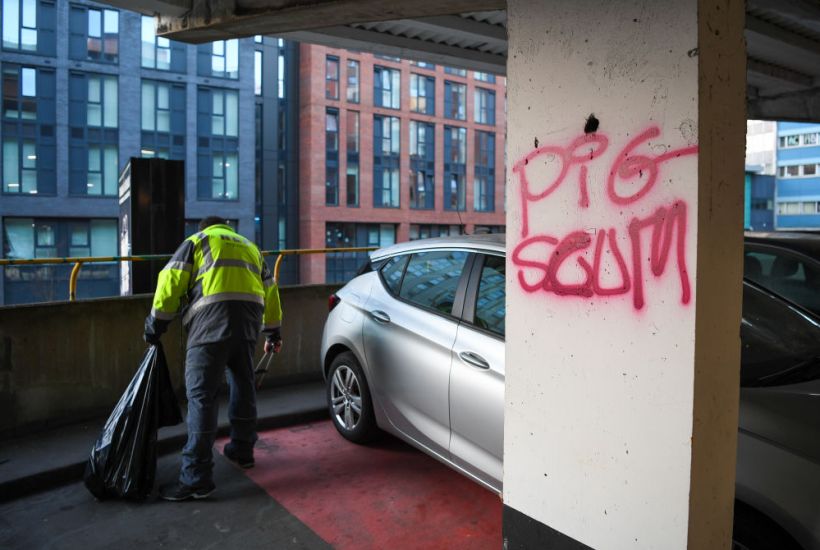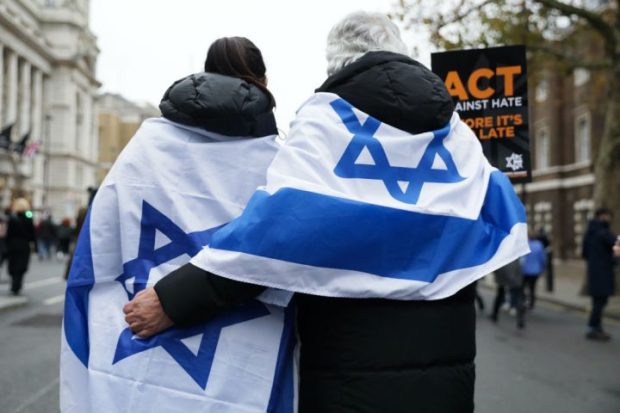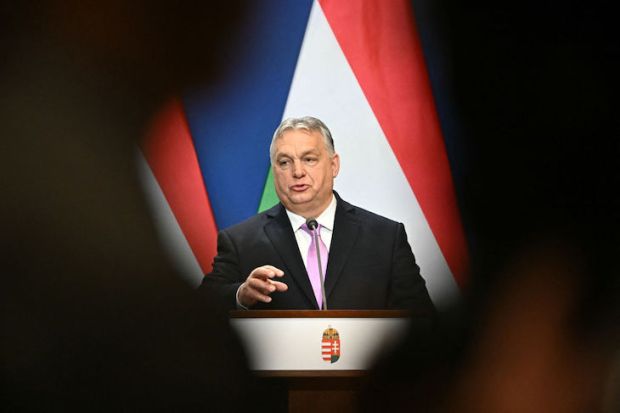The ugly scenes in Bristol last night make it plain to see that Britain can no longer turn a blind eye to a particular brand of political disorder. Violent clashes during the city’s ‘Kill the Bill’ demonstration – supposedly in protest against the Conservative government’s Police, Crime, Sentencing, and Courts Bill – resulted in 20 police officers being injured, burned-out police vans, and a police station being attacked. Two officers who were seriously injured suffered from broken ribs, a broken arm and a punctured lung.
So who was to blame for this violence? The chairman of Avon and Somerset Police Federation, Andy Roebuck, labelled last night’s anarchy a form of ‘unprecedented violence’. And the city’s mayor, Marvin Rees, described the rioters as ‘serial demo-attenders’. Yet neither description fully sums up the motives of those involved.
While Islamist extremism is the country’s prevailing terror threat (with far-right extremism being the fastest-growing), the threat of far-left violence is one which needs to be taken more seriously by the UK’s law enforcement institutions and security services.
This isn’t a popular point to make: when I wrote recently that Britain cannot be blind to the threat of far-left revolutionaries, I was accused of ‘betraying’ the left. The Morning Star even took aim at me in a piece titled ‘The Reds no longer under the bed‘. My warning – that far-left revolutionary activity is a threat to social cohesion and public order – was framed by the paper as ‘very old, reactionary argument’ which was ‘key to the Tories’ culture war’.
Yet even an old-fashioned trade unionist like me can see it is high time that the government tackles the scourge of far-left disorder. If they fail to respond properly and back the police, make no mistake: the lawless events which unfolded in Bristol overnight are bound to be repeated.
This condemnation is something which comes more easily to the Tories. Priti Patel was quick to call out the ‘thuggery and disorder by a minority’ which, she said, ‘will never be tolerated’: ‘Our police officers put themselves in harms way to protect us all’.
And while it’s true that Labour’s leader Keir Starmer was also unequivocal in his condemnation of what happened in Bristol – saying the riot was ‘inexcusable’ and ‘completely unacceptable’ – some of those on the Labour left are slower than they should be to speak out against this particular brand of extremism.
Take one of Starmer’s own MP’s, Nadia Whittome, who refused to condemn the violent protesters in Bristol. Despite being asked four times by BBC presenter Jo Coburn, Whittome would only say:
‘I’m not going to get into condemning protesters when we don’t know what’s happened yet. We need a full investigation into what has happened.’
Centre-left progressive politicians like Starmer must do more to speak out against such ‘fence sitting’. They should also call out more generally against far-left anti-police sentiment whenever it rears its head, not just when it erupts in violence. Otherwise the Labour leader’s condemnation of the ‘ACAB‘ brigade – an acronym for ‘All Cops Are Bastards’ – who wreaked havoc yesterday in Bristol, rings rather hollow. Starmer, after all, was a man who bent the knee for Black Lives Matter, an organisation which seeks to get rid of the police.
Among some far-left protesters, an unshakeable view is all too common: that positive social transformation can only be achieved by overthrowing existing institutions which are perceived to be ‘points’ of abusive power. It’s no surprise that for those with this perspective on the world, the police are seen as a legitimate target.
Yet while this type of world view is all too often ignored by those who are quick to call out (rightfully) the extremism that exists on the right, the events in Bristol show that it’s time to act. Those on all sides of the political debate should join in condemning all types of political violence.
Last night’s events might be seen by some of the perpetrators as a working-class revolt against police ‘brutality’ in the UK. It was nothing of the sort. The frontline officers injured were just men and women doing their jobs. And they deserve to be protected from the scourge of violent extremism, whatever the motivation of the perpetrators.
<//>
Got something to add? Join the discussion and comment below.
Get 10 issues for just $10
Subscribe to The Spectator Australia today for the next 10 magazine issues, plus full online access, for just $10.




















Comments
Don't miss out
Join the conversation with other Spectator Australia readers. Subscribe to leave a comment.
SUBSCRIBEAlready a subscriber? Log in